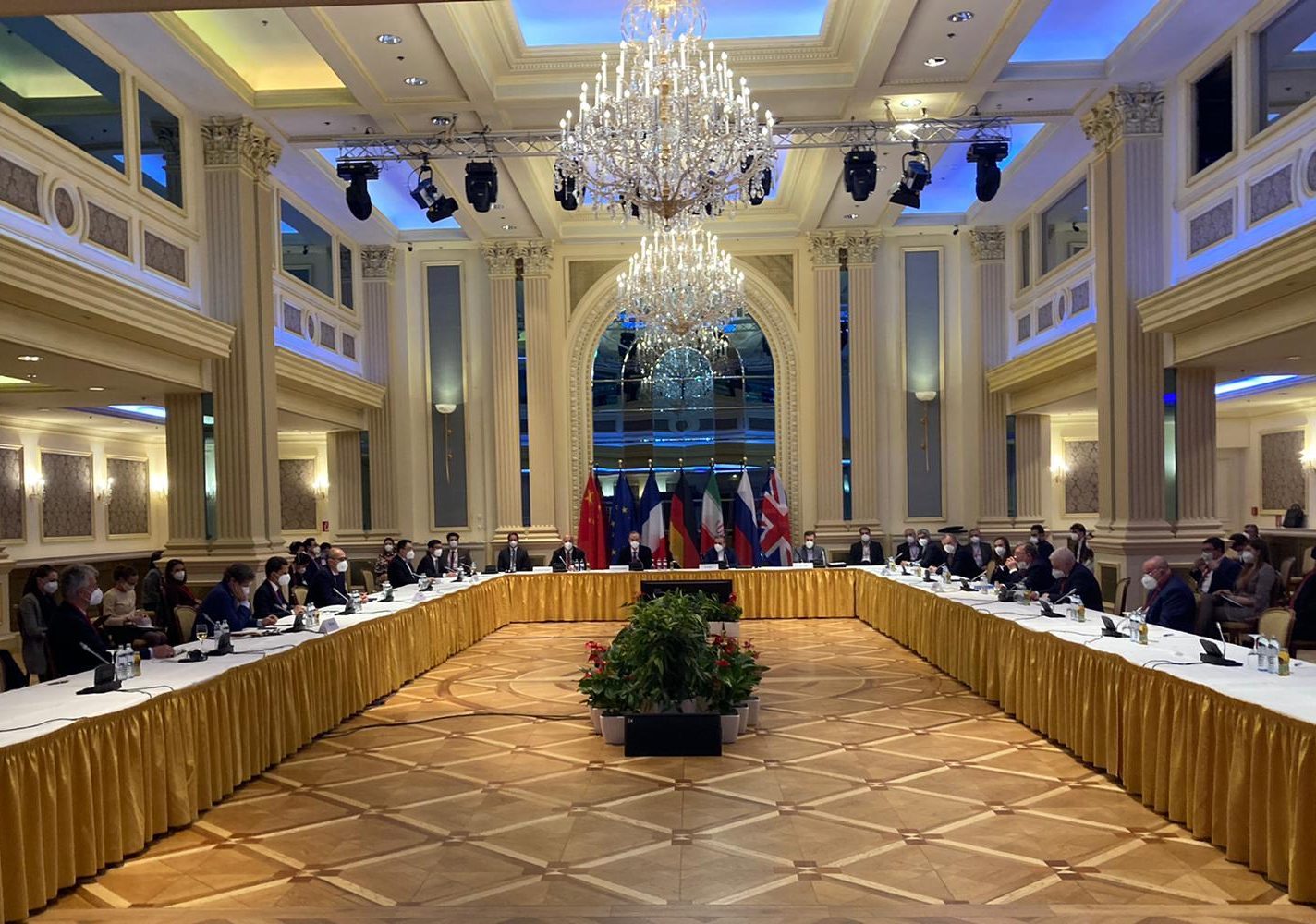Ebrahim Raisi won Iran’s latest presidential elections on Saturday and is set to take office in August to become the Islamic Republic’s next leader.
Diplomats at the ongoing Vienna nuclear talks said that more progress “on a number of technical issues” has been made during the meetings on Sunday, the first such positive move since Iran’s presidential elections took place, the Associated Press [AP] reported.
“We have now more clarity on technical documents — all of them quite complex — and that clarity allows us to have also a great idea of what the political problems are,” Enrique Mora, the EU official who chaired the final meeting of the sixth round of talks, told reporters.
Mora added that negotiators are closer to a deal and it is now up to the governments involved in the talks to make decisions.
“We are closer to a deal, but we are not still there,” he noted.
Sunday’s meeting was the first to take place after the election of Iranian judiciary chief Ebrahim Raisi on Saturday, who is set to take office in August to become the Islamic Republic’s next leader after Hassan Rouhani.
“The JC [Joint Commission] of JCPOA met today, took stock of the significant progress made at the #ViennaTalks, including at the sixth round, and decided to make a break to allow participants to consult with their capitals in preparation for what is supposed to be the final round of negotiations,” tweeted Mikhail Ulyanov, Russia’s representative at the talks.
Qatar congratulates newly-elected President Raisi as world powers edge towards new Iran deal
According to the AP, Ulyanov also said that negotiations might be finalised by mid-July.
“I believe we have all chances to arrive at the final point of our negotiations, maybe even by mid-July, unless something extraordinary and negative happens,” said Ulyanov.
In a written statement after Sunday’s talks, diplomats from the E3—Britain, France and Germany—called for more rapid decision-making in the capitals of European countries involved in the talks.
“Delegations will now travel to capitals in order to consult with their leadership…we urge all sides to return to Vienna and be ready to conclude a deal. The time for decision is fast approaching,” wrote the diplomats.
New Iranian presidency
Representatives from the countries involved in the deal—France, the United Kingdom, China, and Germany—have in recent months taken a step back to wait for the election results before reaching an agreement at the Vienna talks.
Before the sixth round of talks, Iran’s deputy foreign minister for political affairs Seyyed Abbas Araghchi said that “ almost all the agreement documents are ready”.
“Of the main issues that remain disputed, some have been resolved and some remain, but it has taken on a very precise form and it is quite clear what the dimensions of these disputes are,” he added.
The Iranian diplomat also said that he hopes a conclusion is reached in the next round.
“I hope it will reach in the next round, but it is certainly not possible to predict whether we will be able to do so in the next round, but I am very hopeful,” said Araghchi.
Meanwhile, outgoing Foreign Minister Javad Zarif said that a deal might be within reach before August.
“There is a good possibility that we will reach an agreement before the end of our tenure,” Zarif told Al Jazeera’s Sami Zeidan during a session of the Antalya Diplomacy Forum on Saturday.
Zarif added that “the text is getting cleaner and cleaner” and “the brackets are being removed”.
Raisi’s victory raised questions regarding the fate of the ongoing Vienna talks, aimed at reviving the Joint Comprehensive Plan of Action [JCPOA] following a US withdrawal from the deal by former Donald Trump Administration in 2018, which imposed sanctions that took a major toll on Iran’s economy.
But despite previously opposing the nuclear deal, Raisi expressed his support towards it throughout elections debates, promising to create a strong government that would effectively lead to an implementation of the JCPOA.
Raisi is also the first Iranian president to be sanctioned by the US even before assuming presidency for his alleged involvement in the 1988 mass executions.
Tensions between Iran and Israel have also been heightened ever since the attack on Tehran’s Natanz nuclear facility, which has been blamed by authorities in the Islamic Republic on Tel Aviv, citing its clear opposition of the return to the JCPOA.
On Sunday, Israel’s new Prime Minister Naftali Bennett warned that Raisi’s election was “the last chance for the world powers to wake up before returning to the nuclear agreement and to understand who they’re doing business with”.
“These guys are murderers, mass murderers: a regime of brutal hangmen must never be allowed to have weapons of mass destruction that will enable it to not kill thousands, but millions,” he said.
Meanwhile Bennett himself is known for his statements about killing Palestinians to make way for Israeli settlers.
“‘I’ve killed lots of Arabs in my life and there’s no problem with that,” said Bennett in 2013.
Follow Doha News on Twitter, Instagram, Facebook and Youtube







